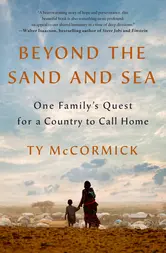Al-Shabab Terrorism in Kenya: Three Things to Know
Al-Shabab’s deadly Westgate Mall siege in Nairobi is unlikely to alter Kenya’s foreign policy, but the incident could encourage tighter U.S.-Kenya relations and reinforce Washington’s engagement with the broader region, says CFR’s Jendayi Frazer.
September 24, 2013 1:03 pm (EST)
- Explainer Video
Al-Shabab, an al-Qaeda–linked militant group, has claimed responsibility for the deadly attack and prolonged siege at an upscale mall in Kenya’s capital. CFR’s adjunct senior fellow for Africa studies, Jendayi Frazer, highlights three things to know about the attack and its implications for Kenyan and U.S. policy:
- Al-Shabab’s globalization: The group claiming responsibility for the terrorist attack began as the militant wing of the Somali-based Islamic Courts Union and is affiliated with al-Qaeda in East Africa. It is a global jihadist group with combatants from all over the world, including Pakistan, Afghanistan, and particularly Somalia, says Frazer.
More on:
- Kenya’s foreign policy: "The attack on Kenya was partly a response to Kenya’s effort to work with the African Union forces in Somalia to help stabilize the new government," Frazer says. However, Kenya is not going to change its foreign policy and its Western alignment as a result.
More on:
- U.S. engagement: "U.S. policy is likely to become even more engaged, even more robust," says Frazer. President Barack Obama spoke with Kenyan president Uhuru Kenyatta following the Westgate mall siege, in what may be the latest sign of overcoming the "awkwardness" between the two nations. Bilateral ties have been distant as Kenyatta faces war crimes charges at the International Criminal Court.
More on:
More on:
 Online Store
Online Store

